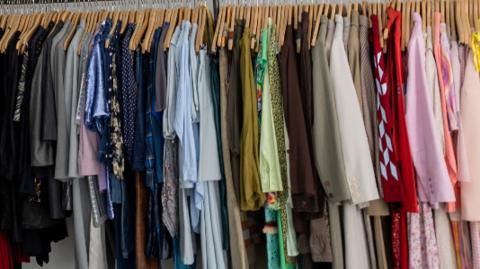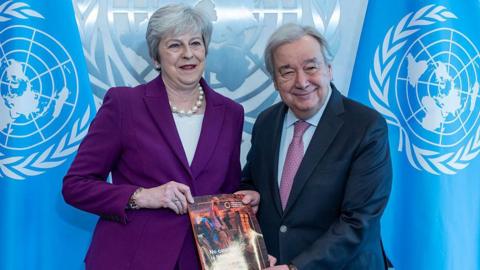In recent years some retailers such as the Chinese fashion giant Shein have been accused of using forced labour in its supply chains.
In 2024, it promised to tighten scrutiny after finding two cases of child labour at its suppliers.
At a parliamentary committee hearing earlier this year, a senior lawyer for Shein said the company complied with "laws and regulations in the countries we operate in" and that suppliers were required to sign up to robust standards.
The company is currently looking to list its shares on the London Stock Exchange.
May said modern slavery had recently "fallen down the political agenda" and that she wanted to boost efforts to tackle it.
Asked why she thought the subject was receiving less attention, she said "governments often find it difficult to concentrate of lots of things at the same time" and that other issues such as climate change, conflict and Covid received greater focus.
Tackling modern slavery was a particular focus of May's when she was home secretary and later prime minister.
In 2015, she passed the Modern Slavery Act which introduced new powers aimed at protecting victims and prosecuting offenders.
The law introduced a new defence for victims of slavery and trafficking who had been forced to break the law.
Following its introduction there was an increase in convictions for modern slavery offences.
However, Home Office ministers subsequently raised concern that the law was being abused by those in the UK illegally, who wanted to avoid deportation.
In 2022, the Conservative government, then led by Boris Johnson introduced changes aimed at helping decision makers identify genuine victims of modern slavery.

